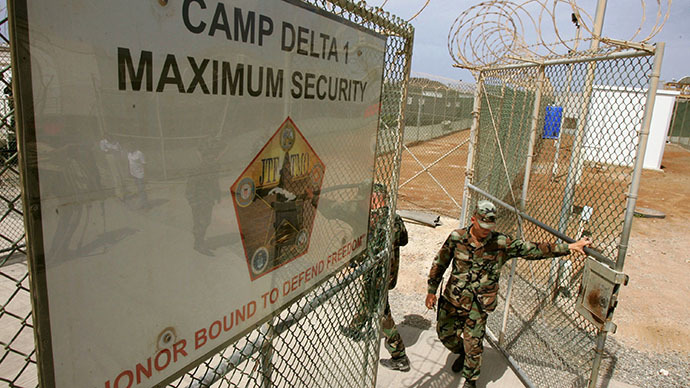‘Cruel and reckless’: US transfer of Algerian Gitmo men against their will

Despite years of fighting to get released from Guantanamo prison, the US forceful transfers of Djamel Ameziane and Belkacem Bensayah to Algeria is illegal and cruel, Pardiss Kebriaei, a senior attorney at the Center for Constitutional Rights told RT.
RT:As someone who’s close to these cases, what do you feel about these two men’s releases today?
Pardiss Kebriaei: Very simply, these transfers were unlawful, under international law. They were senseless, because these men had third country options for resettlement, and they were cruel and reckless. They now face a risk – they had a credible fear of persecution in Algeria. They’re facing now the prospect of an incommunicado detention for a period of weeks and then…
RT:I’m confused – you, and especially the colleague that has been dealing with these guys – wanted them released from Guantanamo. You've got your way, but now there’s still a problem?
PK: Well, these men were cleared – or our client Djamel Ameziane was cleared in 2009 – he was actually cleared under the Bush administration as well – his fear of return to Algeria was so severe that he wanted to stay in Guantanamo rather than be transferred to Algeria. He was seeking resettlement in a third country. And we knew, and the US government knew that there were options for his transfer to a safe third country, and despite those options it forcibly transferred him.
RT:So you’re saying that it’s better that they’re still in Guantanamo tonight?
PK: Our client would have said that he would rather had stayed in Guantanamo then to be transferred to Algeria where he is now.
RT:Why then America transferred him. Why have they done that if they knew about the dangers you are talking about?
PK: It’s a good question and I think this is the question to ask the State Department and the government. This is not the way to close Guantanamo. If the US wanted to transfer man out of the prison, there are 56 Yemenis who want to go home. Many of them want to go home. There are countries to send people to where they do not face the fears that these man had. So it is senseless, mystifying and confusing and unlawful that this happened.
RT:Are you any closer with your colleagues any closer at sorting out these men’s treatment in Guantanamo?
PK: There have been a trickle of transfers since a major speech that President Obama made in May of this year announcing a re-commitment at closing the prison. This came only after a mass hunger strike at the prison, which is the only reason that prompted any action by the US government. But it did prompt a speech, more words, important words and some steps but in terms of actual transfers we have seen a trickle. There were two Algerians who went voluntarily before these transfers. And there were two Sudanese men that were just transferred and there were these two Algerian men, our client Djamel and another one Belkacem Bensayah who was forcibly transferred. That isn't enough progress by any stretch.
RT:Our correspondent when visiting a prison was not allowed access to any single prisoner inside the prison. Are you surprised at that?
PK: That is the way it has been at Guantanamo since the beginning. There has never been a direct access to the men themselves or the opportunity for the press to visit the prison and get more than a press tour, to actually be able to meet with men individually. There’re has not been access for independent, international human rights monitors. So no, I’m not surprised.
The statements, views and opinions expressed in this column are solely those of the author and do not necessarily represent those of RT.
The statements, views and opinions expressed in this column are solely those of the author and do not necessarily represent those of RT.












